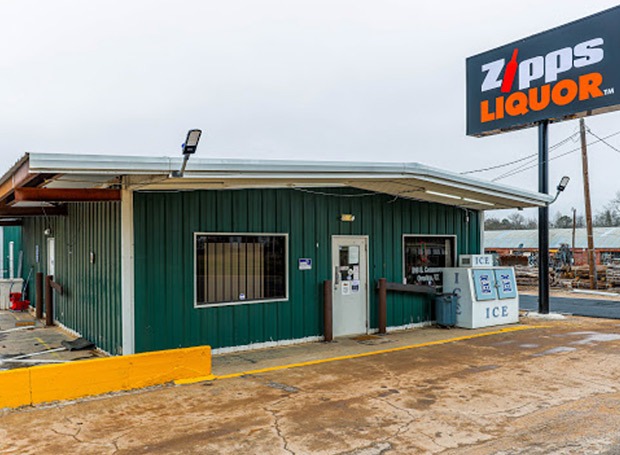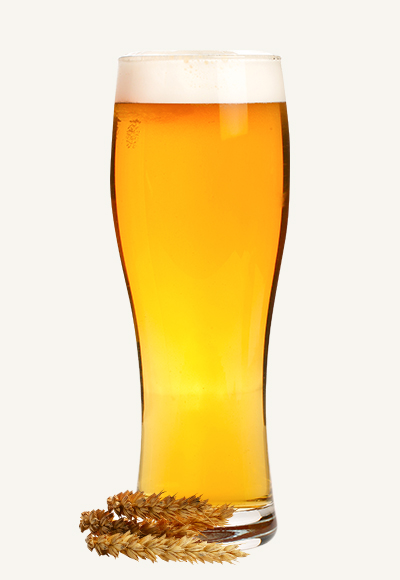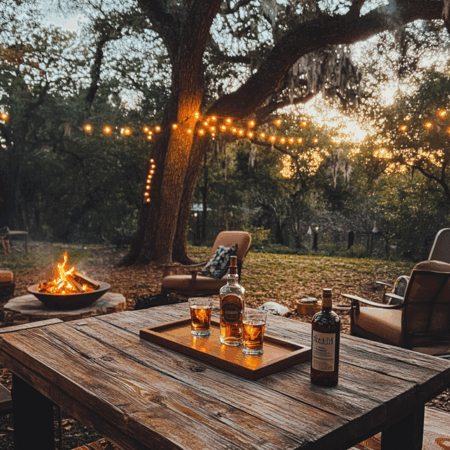Overton Liquor Store
Pick-up & Delivery Available for Online Orders
Purchase your favorite beers, wines, and spirits for in-store pickup or delivery.
SHOP ONLINE GET DIreCTIONS

Phone
Opening Hours
| Monday | |
| Tuesday | |
| Wednesday | |
| Thursday | |
| Friday | |
| Saturday | |
| Sunday | Closed |

Elevate your spirits at Zipps, the go-to liquor store in Overton! We’re near Dollar General on S. Commerce St., between Mundy St. and Brandon St. East. Our shelves are brimming with enticing choices for everyone – whether you’re from Overton, New London, Sexton City, Red Level, or Leverett’s Chapel, TX. Zipps is where good times begin!
Visit Us Today!
Unwind with Zipps Liquor! Our knowledgeable team is eager to guide you through our diverse selection. From classic wines and craft beers to the latest trending spirits, our liquor store in Overton is the ultimate destination for all your beverage needs. Are you hosting a party or a cozy night in? Swing by Zipps Liquor in Overton and make it an affair to remember! Cheers to great choices and unforgettable moments.
Visit our liquor store in Overton, today!
Discover our Liquor Store in Overton
Welcome to Zipps Liquor Store in Overton, TX!
Welcome to Zipps Liquor! Our liquor store, comfortably nestled on S. Commerce St. between Mundy St. and Brandon St. East, right next to the Dollar General, stands as a beacon for those seeking quality beverages at affordable prices. We’re not just any liquor store; we’re your liquor store in Overton, TX. 📍
Our doors are always open, not just for our lovely locals but for our neighbors from New London, Sexton City, Red Level, and Leverett’s Chapel, TX. Overton is a beautiful town enriched by a community of people that we proudly call our customers. We believe in giving back to this community, and it’s our mission to provide an unrivaled selection of beers, wines, spirits, and mixers at unbeatable prices.
We’ve created an environment where you can relax and enjoy your shopping experience. Stepping into our liquor store in Overton, TX is not just about making a purchase; it’s about becoming a part of our family, and we can’t wait to welcome you.
Stellar Customer Service 🌟
At Zipps Liquor, we believe in providing a shopping experience that goes beyond the purchase. Our friendly and knowledgeable staff are always ready to help you find exactly what you need. Our 4.8/5 star service is a testament to our commitment to our customers.
Check Out Our Bounty of Beverages in Overton, TX
At Zipps Liquor, we pride ourselves on our extensive range of beverages that caters to every taste, preference, and occasion. Our store is literally stocked from the windows to the walls, a testament to our dedication to providing you with a multitude of choices.
Beer 🍺
In our store, you’ll find an eclectic array of beers, ranging from local to international brews. For those who prefer a more traditional taste, we stock a plethora of mainstream beers. But for the craft beer enthusiasts among you, our shelves are brimming with unique and innovative brews. It’s always beer o’clock at our liquor store in Overton, TX.
Wine 🍷
Wine lovers will find an exceptional assortment of wines at Zipps Liquor. Whether you prefer a dry red, a crisp white, or an exquisite rosé, we’ve got you covered. From the vineyards of California to the slopes of Italy, our wines come from all corners of the world.
Spirits 🥃
But it’s not just about beer and wine. Our spirits selection boasts a spectrum of tastes. From the smoothness of a well-aged whiskey to the bite of a quality vodka, our collection is designed to satisfy your every whim. Our liquor store in Overton, TX, is your one-stop shop for all your spirits needs.
Mixers 🍹
Finally, let’s not forget about our mixers. We have everything you need to create your favorite cocktails, from tonics and sodas to a variety of fruit juices. Get creative with your drinks at our liquor store in Overton, TX.
Preparing for Holidays with Drinks from Zipps Liquor
We understand the importance of holidays and the role that our favorite drinks play in these celebrations. It’s our mission to ensure that your holidays are as merry as can be with our stellar liquor offers.
Christmas 🎄
Nothing spreads the Christmas cheer quite like a warm mug of mulled wine or a frothy pint of holiday ale. From spiced ciders to festive liqueurs, we have everything you need to make your Christmas merry and bright.
Fourth of July 🎇
Celebrate Independence Day in true American fashion with our range of locally brewed beers and American-made spirits. Raise a toast to freedom and make your Fourth of July unforgettable with our beverages.
Thanksgiving 🦃
Nothing pairs better with a Thanksgiving dinner than a robust red wine or a hearty ale. Our wide selection ensures that you’ll find the perfect pairing for your holiday feast.
Amazing Discounts at our Liquor Store in Overton, TX
At Zipps Liquor, we’re more than just a store – we’re a community hub where everyone is welcome to browse, shop, and save. We’re delighted to invite you to explore the amazing discounts at our liquor store in Overton, TX. Here, value meets variety in an exciting and budget-friendly shopping experience.🛍️
One of the many reasons why our customers love Zipps Liquor is because of our everyday low prices. From local brews to international brands, we’ve got you covered with fantastic deals across the board. We firmly believe that enjoying your favorite drink shouldn’t break the bank, and that’s why we offer our high-quality products at affordable prices.
Bulk Discounts for Weddings & Parties
Planning a wedding or a party? Let us help! We offer bulk discounts for those special occasions, ensuring that your guests never go thirsty. We understand the stress of event planning, and we’re here to make it a little easier.
Wholesale Liquor Discounts for Bars & Restaurants
We’re not just here for the individual buyer. At Zipps Liquor, we offer wholesale discounts to bars and restaurants, providing a wide range of quality products at competitive prices. Keep your bar stocked and your customers happy with our wholesale offers.
Local Events in Overton, TX
Overton has a lot of fun events happening every year. Read on to learn more about the local events that are sure to entertain locals and visitors alike.
The Tomato Fest is an annual event that celebrates everything tomato! There will be a variety of activities and food options available, so bring the whole family out for a day of fun!
The Historic Longview Farmers Market is located near Overton, in Longview, TX. The market features fresh produce, baked goods, and crafts from local vendors, and it has become a staple of the community.
The Texas Shakespeare Festival is a world-renowned performing arts organization that produces professional theatre and educational programming in the classic tradition. Located in the heart of the Texan Riviera on the campus of Kilgore College, the festival has been entertaining and educating audiences since 1957.
Each year, the festival presents five mainstage productions in addition to a variety of educational and outreach programs. The mainstage season usually includes a mix of tragedy, comedy, and romance, with something for everyone. This year’s lineup includes Shakespeare’s “Macbeth,” Moliere’s “The Miser,” and Rodgers and Hammerstein’s “The Sound of Music.”
The Texas Shakespeare Festival is more than just a great place to see a show. It’s also an excellent place to learn about theatre. The festival offers classes and workshops for students of all ages, as well as summer camps for kids. These programs offer participants a chance to study with some of the best professionals in the business.
July 4th is a special day for Americans. It’s the day we celebrate our independence from England. There are always lots of fireworks and parades, and people usually have barbecues or picnics.
Places to Visit in Overton, TX
Overton and its surroundings have many places to visit. If you’re a history buff or just looking for something interesting to do on your next trip to the state of Texas, Overton is a great place to explore.
The London Museum and Cafe is a must-see attraction in Overton, TX. The museum is home to a variety of interesting exhibits, including ancient artifacts, fossils, and works of art. The cafe offers a wide variety of delicious food and drinks, making it the perfect place to relax and take a break from exploring the museum.
The Caldwell Zoo is a great place for a family day out. It has a wide variety of animals, from lions to giraffes to elephants, and it’s always interesting to see them up close. The zoo also has a large playground, which is great for kids, and a few restaurants if you get hungry. It’s definitely worth a visit!
The waterpark at the Villages near Overton, in Flint, TX, is a great place to cool off and have some fun on a hot day. There are plenty of slides and splash pads to keep everyone entertained, and the park is big enough that there’s plenty of room to spread out.
If you’re looking for a liquor store in Overton, Texas, there’s a Zipps Liquor store on S. Commerce St. between Mundy St. and Brandon St. East next to Dollar General. It’s open every day from 10 am to 9 pm. There is a great selection of beers, wines, and liquors, and they also have cigarettes and cigars. We also have a variety of snacks and drinks, including soft drinks, energy drinks, beer, and wine coolers.
If you’re looking for a place to buy alcohol in Overton, Texas, Zipps Liquor is the place to go!
Visit our liquor store in Overton, TX!
We’ve shared a lot about what makes Zipps Liquor the go-to liquor store in Overton, TX. But words can only go so far. Now, we’re extending a personal invitation to you to experience our store firsthand. We’d love for you to come and witness the unrivaled selection, unbeatable prices, and top-notch customer service that we offer. It’s time to turn our words into your experience. 🤝
A Warm Welcome Awaits 🤗
At Zipps Liquor, we believe that shopping should be an enjoyable experience, which is why we offer a warm, friendly environment from the moment you step through our doors. Our staff is ready to greet you with a smile, guide you through our aisles, and answer any questions you may have. We’re not just in the business of selling liquor; we’re here to make you feel right at home.
Great Selection at Your Fingertips 🍾🍷🍸🍺
We can’t wait for you to explore our extensive selection of beers, wines, spirits, and mixers. We have worked hard to curate a diverse and exciting range that caters to every taste, preference, and occasion. From local brews to international labels and from popular brands to niche crafts, our store is a testament to the world of beverages. And it’s all at your fingertips at our liquor store in Overton, TX.
Unbeatable Prices for Unbeatable Value 💲
Price matters, and we get that. At Zipps Liquor, we offer competitive prices that you’ll be hard-pressed to find elsewhere. But we don’t stop at just low prices. We also offer amazing discounts and deals throughout the year, providing you with unbeatable value on your favorite drinks.
Join the Zipps Liquor Family Today 🏡
We’re not just a store; we’re a family. And we’re inviting you to become a part of it. When you shop at Zipps Liquor, you’re not just a customer; you’re a valued member of our community. We’re here to serve you, to assist you, and to ensure your shopping experience is the best it can be.
So why wait? Accept our invitation to visit the best liquor store in Overton, TX. We’re eagerly waiting to welcome you to Zipps Liquor, where you’ll find quality, value, and service like no other. Don’t just take our word for it. Come and see for yourself. We can’t wait to see you! 🎉
Recent Blogs

Find a Zipps Near You
Find your nearest liquor store in Texas. Visit us or place an order online today.
LIQUOR STORE LOCATOR*Please drink responsibly. Never drink and drive. Always have a designated driver. Must be 21 or over to purchase alcohol. According to the Centers for Disease Control and Prevention, “Excessive alcohol use is harmful and can lead to severe health and social problems”

















